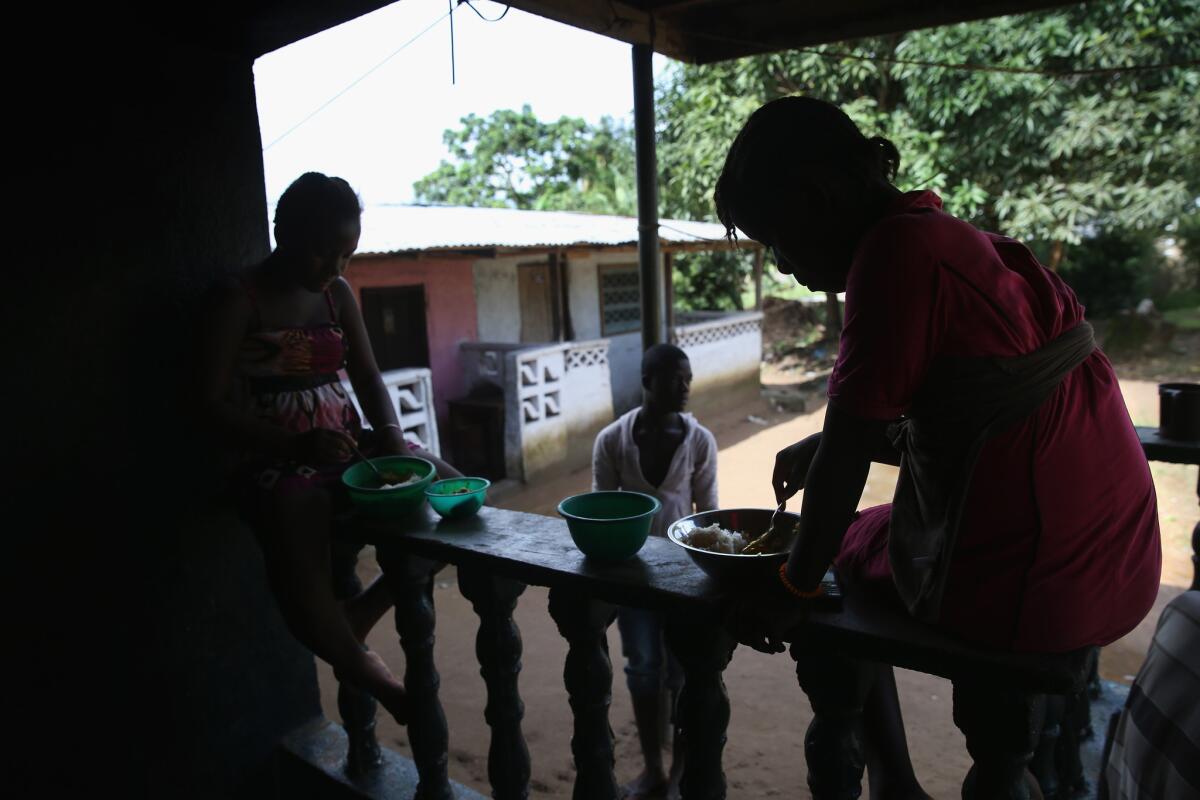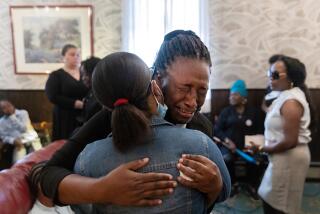Dallas hospital says Ebola patient denied being around sick people

- Share via
Reporting from Dallas — A Liberian man who was turned away from a Dallas hospital last week only to return days later and test positive for Ebola told a nurse he had recently been in Africa, but that information did not appear in the electronic medical record provided to the patient’s doctor, hospital officials said late Thursday.
In addition, the hospital said Thomas Eric Duncan was asked whether he had been around sick people, and he said no.
Texas Health Presbyterian Hospital has faced criticism for failing to screen and isolate Duncan during his first visit the night of Sept. 25.
Duncan had traveled to Dallas from Liberia five days earlier. He was not isolated until Sunday, when he returned to the hospital by ambulance.
Two paramedics and an intern who drove Duncan to the hospital have been isolated at home, and it’s not clear how many others may have been exposed. A spokesman for the U.S. Centers for Disease Control and Prevention team dispatched to investigate said it had a list of at least 100 people who may have had direct or indirect contact with Duncan.
Duncan has been in isolation at the hospital and has not commented about his case. Four of those he was visiting have been confined to their Dallas apartment and have not emerged to discuss the circumstances of his hospitalization.
On Thursday evening, hospital spokesman Wendell Watson released an account of Duncan’s first visit to the emergency room, “in the interest of transparency, and because we want other U.S. hospitals and providers to learn from our experience.” The statement said Duncan had given permission to release the information.
He hospital said Duncan was received in the emergency room like any other patient: by an intake nurse, then a triage nurse. Triage nurses are trained to look for several red flags of infectious diseases like Ebola: symptoms, exposure to someone who was sick and overseas travel during the last four weeks.
Duncan had some symptoms - a temperature of 100.1, a sharp headache, decreased urination and abdominal pain - but said he had not had nausea, vomiting or diarrhea, according to the statement.
Hospital staff concluded Duncan’s symptoms were not severe.
Additionally, according to the statement, “When Mr. Duncan was asked if he had been around anyone who had been ill, he said that he had not.”
In response to questions about his travel during the last four weeks, Duncan did say he had been in Africa and, according to the hospital statement, “The nurse entered that information in the nursing portion of the electronic medical record.”
But it apparently wasn’t passed on to a doctor, the hospital statement said, because of “a flaw in the way the physician and nursing portions of our electronic health records interacted.”
Although a patient’s travel history appeared in the patient records nurses saw, it did not automatically appear in the version of his records that doctors saw.
In response to the incident, the statement said, the hospital has changed work flows to ensure that patient travel history appears in the version of medical records that doctors see. The hospital also has modified the travel history section to “specifically reference Ebola-endemic regions in Africa.”
“We have made this change to increase the visibility and documentation of the travel question in order to alert all providers,” the statement said. “We feel that this change will improve the early identification of patients who may be at risk for communicable diseases, including Ebola.”
Duncan remained in serious condition late Thursday.
More to Read
Sign up for Essential California
The most important California stories and recommendations in your inbox every morning.
You may occasionally receive promotional content from the Los Angeles Times.











